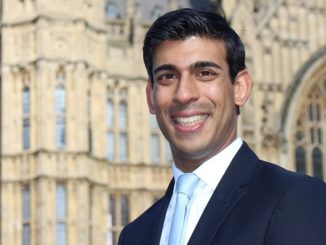
Marshaj2020 / CC BY-SA
Or have we? In the course of more than four weeks of self/family isolation we have all encountered mountains of speculation on the sources of Covid-19; how it spreads; estimates of its final tally of victims; how many people already have antibodies and immunity; time-frames for each phase of its progress; Ro spread-estimates; international comparisons of success/failure in defeating it (with supporting graphs); opinions on when testing/lockdown should have started; why we don’t have sufficient numbers of masks, testing-kits, hospital beds, protective equipment, ventilators and care-staff; current case numbers and deaths; economic impact on GDP – as well as myriad statistical permutations of all the above expressed as ratios and percentages.
Every newspaper, journal, broadcast medium and podcast promotes a different belief, opinion or theory, and in the interests maintaining a semblance of sanity I have now stopped imbibing this conflicting “expertise”. Every time our politicians say they are “following the science” it is less convincing.
From the start there has been a dearth of any objectively sourced, definitive or factual information, and that’s because there wasn’t any. But because officialdom is pathologically risk-averse, it follows up with blind guesswork arising from ill-concealed fear; perhaps acting “from an abundance of caution”; or simply from a need to be seen to be “doing something” (take your pick). The result is the present affliction of a government-imposed “lockdown”, so submissively tolerated – in this country anyway.
Ineffective and disproportionate measures
What does not help the case for continued lockdown is the blatant absurdity of so many of its features. Hundreds of outdoor recreational pursuits have been curtailed, closed or forbidden, including solo activities such as surfing, hiking, biking, bird watching, even walks in the country.
Our Prime Minister’s four-word slogan “Let’s get Brexit done” clearly did his cause no harm when it came to last December’s election. But the authoritarian admonition “stay at home, protect the NHS, save lives” rings hollow by comparison. Too many are thinking “Hang on, is it our job to protect the NHS? Isn’t it the other way round? If the service was caught napping by the ferocity and suddenness of the new disease, what does that say about its fitness for purpose?”
[Here I distinguish between (a) the monumentally unselfish, tireless, brave souls who daily put their own lives at risk, and (b) their employer, the NHS, the £150 billion p.a. behemoth run by executives on top salary grades.
Who do you suppose sets those grades? People whose own salaries are equally divorced from anything so prosaic as productivity criteria. Remember – public sector pay, bankrolled out of taxes, is and always will be beyond economic measure!]
The instruction “Stay at Home!” carries so many qualifications and exceptions that people are left bemused by its feigned rigidity when it is tempered by such ambivalence.
As for the “Save Lives” plea, it might command more respect had efforts to date demonstrated greater success. A more flexible approach has been adopted in Taiwan, South Korea, Israel, New Zealand, South Africa and certain Scandinavian countries, notably Sweden, and has so far shown far better outcomes than the draconian lockdown measures applied in most other countries, including Britain and USA, where their effectiveness has been disastrous.
No obsessive crippling of the economy
In Taiwan most residents carry on as normal, with offices and schools open. Many restaurants, gyms, and cafes in the capital, Taipei, are still bustling, although most premises will take temperatures and spray hands with sanitizer before allowing customers in. The Swedish government has applied no lockdown and is reported to be close to achieving herd immunity.
The governments of these countries, with diverse cultures and laws, while ensuring that trustworthy public health notices are broadcast and amply displayed, have decided not to cripple their economies in a rigid lockdown. Common-sense precautions concerning large crowds, social distancing and use of masks in public have been officially recommended and there has been widespread compliance. But the advice has not been backed by rigid and coercive threats to democratic principles.
Trusting people
Is it really so surprising that when people are left to exercise their own judgement on how to act in their own best interests they will generally act proportionately? If a shopkeeper decides to keep his shop open it is obvious that any customers he attracts will have made up their own minds to shop there – with masks, if that is their choice. If the couple walking towards you are not wearing masks you could cross the road – it’s entirely up to you. They will not be offended.
But the media prefer to feed the lockdown frenzy with stories of blatant “disobedience”, possibly involving heavy-handed police enforcement. Before the lockdown you could never find a policeman anywhere near a crime, but now? Just try sitting on a bench in your local park and a pair of uniformed heavies will magically manifest in the blink of an eye to remind you of your civic duties.
Liberty and the economy
The purpose of the lockdown is obviously to inhibit the ability of this highly contagious virus to infect more people via tactile communication or by breathing the same air. But, as is clear from the multitude of differing views on the lockdown’s effectiveness, the need to weigh its economic consequences becomes more pressing by the day.
As I explained in my last essay (EP-76) a loss of production may in part be compensated by a massive subsequent effort – but that would be a new effort: the production that was lost stays lost – forever.
Uppermost in my mind, however, is not merely the economic loss of production, but the accompanying loss of democratic freedom that appears to have been so slavishly swallowed.
Do people actually believe that governments of countries over which a blanket lockdown has been enforced will suddenly say “Sorry for the inconvenience, folks. It’s OK now. Your civil freedoms were on hold for a while, but are of course intact and will be restored to you as quickly as they were taken away”?
Many public servants, officials, police, bureaucrats, politicians and jobsworths in general share a predilection for acquiring a mantle of “worthiness” in the public mind, even a sense of importance, and they have been given more than a whiff of it during the lockdown. Luxuriating in powers assumed during the current economic paralysis exerts a pull that few egos can resist.
Let me restate the principle: there are no economic measures for identifying the point at which government “assistance” insidiously grows into a self-justifying, self-fulfilling and self-perpetuating end in itself. All we know is that when this metamorphosis is complete the government’s help has become a crushing burden. This is why liberty, once seized, for whatever “good” reason, is so rarely restored. Are you able to provide me with a single example of when this has happened without having to bear a terrible price?
State munificence – who do you think will pay?
Loss of liberty and economic loss are two sides of the same coin and there is no “either-or” to be weighed up in the manner that commentators love putting it. Whatever is said on the excesses of clampdown, what neither public nor politicians appear to comprehend is the sheer, unbelievable, scale of the economic cost of the so-called “assistance” now being dolloped out to businesses, their workforces and just about every loser in this game of limitless mitigation, from furloughing, to lending, to just plain bailing-out.
All of these compassionate trillions, in their entirety, are products of the age-old conjurer’s sleight-of-hand: money printing – as never before!
Respondents to my essays on the “Going Postal” platform sometimes preface their comments or questions with apologies for their limited grasp of economic issues. Fair enough, that’s honest. But I ask you: do you really need to be an economist in order to exercise a smidgen of common sense?
Here’s the crunch:
Government spending must come from borrowings, reserves or taxation. Well right now, since every other country is also in the proverbial s–t, there’s no one left to borrow from (IMF? Join the queue!). Our “reserves”? These are actually a deficit of several tens of billions.
And taxes? When most businesses are teetering on the point of extinction this is hardly the moment to be contemplating additional taxes.
Yet that is exactly what our government, and virtually every other government, is doing, but not overtly. They are simply printing their currencies into vaporising fiction. You may believe you can measure your personal wealth in pounds or dollars – but when these tokens have been robbed of all purchasing power, to the point that no one will accept them as payment for goods and services, what, pray, is their use? Where will your wealth reside then? And who will then fund our beloved NHS?
If you understand this you will never again need to ask me to explain why inflation is a tax. It is in fact the most pernicious, insidious, confiscatory tax of all.
© Emile Woolf April 2020 (website)
The Goodnight Vienna Audio file



